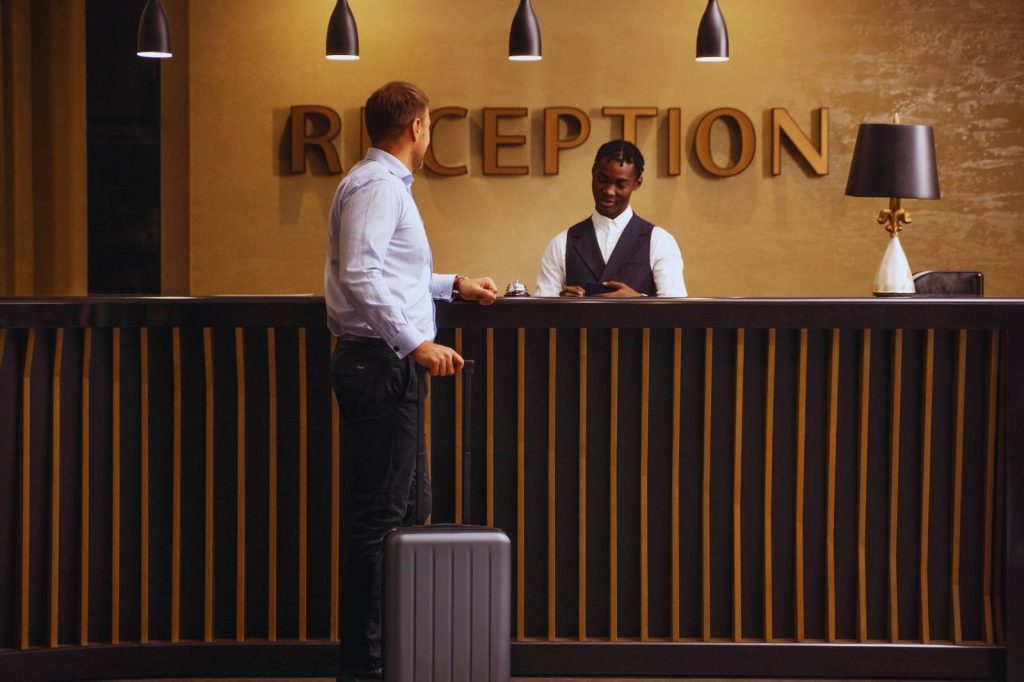“Hey Siri, what’s the best hotel with a spa in Medellín?”
“Ok Google, find hotels near El Poblado with a pool.”
This type of search is becoming increasingly common. In Colombia, more than 30% of digital searches are now done by voice, and that figure keeps growing thanks to assistants like Google Assistant, Siri, and Alexa.
For hotels, this trend represents an invaluable opportunity: to appear in the results people hear, not just the ones they read.
With more than 15 years of experience driving digital strategies for the hotel sector in Colombia, Digisap integrates voice SEO, artificial intelligence, and local content optimization to increase hotel visibility and direct bookings.
1. The new challenge of digital marketing for hotels
Search habits have changed. Travelers no longer type “hotel Medellín” but instead ask natural questions like:
“Where can I stay near José María Córdova Airport?”
“What’s the best hotel with breakfast included in El Poblado?”
Voice SEO for hotels aims to answer precisely these conversational queries.
In cities like Bogotá, Medellín, Cali, and Barranquilla, hotels that optimize their digital presence for voice search achieve greater local visibility, more organic traffic, and more direct bookings without depending so much on OTAs.
2. What is voice SEO and how does it benefit your hotel?
Voice SEO consists of optimizing your website and your digital strategy so that virtual assistants understand, select, and recommend your hotel as the answer to spoken searches.
Natural language and real questions
Voice searches are more conversational. That’s why your website should include FAQs, natural phrases, and direct answers that match how users actually speak.
Example: Instead of “hotel rooms Medellín,” use “What rooms does the hotel in Medellín offer with a jacuzzi?”
Local optimization (local SEO)
Assistants prioritize nearby and relevant results.
This makes it essential to keep your Google Business Profile updated with your address, hours, photos, and reviews.
Digisap has proven that hotels with active local optimization achieve up to 70% more direct inquiries in maps and voice searches.
Technical structure and rich data
Google and Siri’s algorithms read content through structured data (schema.org).
Digisap implements these technical tags so the hotel’s website properly communicates its category, services, location, and rates, increasing the chance of being the featured answer (Featured Snippet).
3. Case studies in Medellín
Binn Hotel
With a local and voice SEO strategy developed by Digisap, Binn Hotel optimized its service pages with key phrases like “luxury hotel near El Poblado.”
Today, the hotel appears in voice searches such as “Hey Google, show me hotels with a spa in Medellín,” generating a 38% increase in local organic traffic.
Zarzo Hotel
Zarzo adapted its blog with Q&A-style content (“Where to stay in Medellín with modern design?”), achieving positioning in Siri and Google Assistant voice results.
Result: a 45% increase in direct bookings from users who found the hotel through voice search.
23 Hotel
Thanks to the implementation of featured snippets and technical optimization for mobile devices, 23 Hotel improved its presence in searches like “best hotels with a view of Medellín.”
This resulted in a 50% improvement in local visibility and sustained growth in direct conversions.
4. Myths and common mistakes about voice SEO
“Only traditional SEO matters.”
Not exactly. Traditional SEO remains vital, but voice SEO complements that strategy by adapting to natural language and the user’s conversational intent.
“It’s only for large hotel chains.”
False. Any hotel — from boutique to corporate — can benefit from voice SEO if it has an optimized website and well-structured content.
“It can’t be measured.”
Yes, it can. Google Search Console and analytics tools make it possible to identify the most frequent voice queries and measure their impact on traffic and conversions.
5. Practical steps to implement voice SEO in your hotel
- Analyze your customers’ frequently asked questions. Turn those questions into article titles or sections on your website.
- Optimize your Google Business Profile. Keep your hours, reviews, and photos updated.
- Use conversational language. Create content that sounds natural, as if you were speaking to the guest at the reception desk.
- Implement structured data. Make sure your website clearly displays information about location, services, and prices.
- Work with an expert partner. Digisap combines SEO, AI, and digital marketing to position hotels in voice search results and local searches.

FAQ: Frequently asked questions about voice SEO for hotels
1. What’s the difference between traditional SEO and voice SEO?
Traditional SEO is based on written keywords; voice SEO focuses on conversational questions and natural language.
2. How does voice SEO help increase direct bookings?
Appearing as the answer from Google or Siri generates immediate trust and takes the user directly to the hotel’s website — without intermediaries.
3. What type of content favors voice SEO?
Lists, FAQs, local guides, and naturally written articles optimized for mobile devices and nearby searches.
4. How long does it take to see results?
It depends on local competition, but generally between 3 and 5 months with a complete voice and technical SEO strategy.
5. Which cities in Colombia benefit most from voice SEO?
Mainly Medellín, Bogotá, Cali, and Barranquilla, where virtual assistants already concentrate most of the tourism and accommodation searches.
Voice SEO for hotels in Medellín and Colombia is no longer optional — it’s a competitive advantage.
Travelers increasingly trust virtual assistants, and being part of their answers can make the difference between being found or going unnoticed.
With more than 15 years of experience integrating strategy, marketing, and technology, Digisap helps hotels position themselves in voice results, increase direct bookings, and strengthen their digital presence.
Request a free diagnosis with Digisap and discover how to optimize your hotel for Google and Siri voice searches.